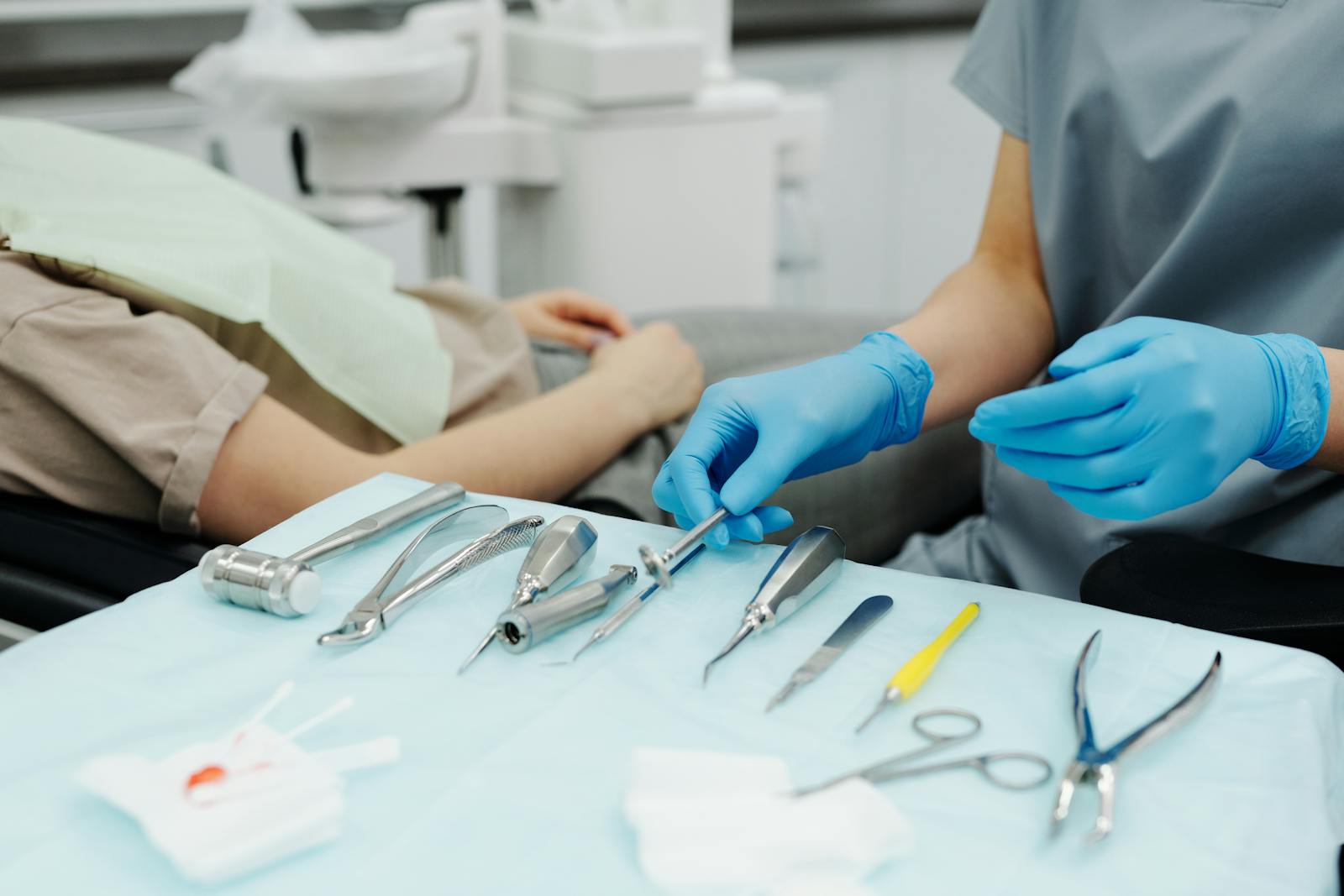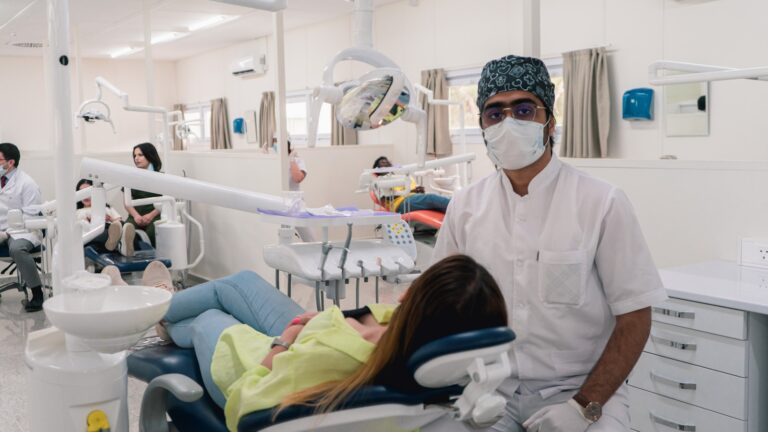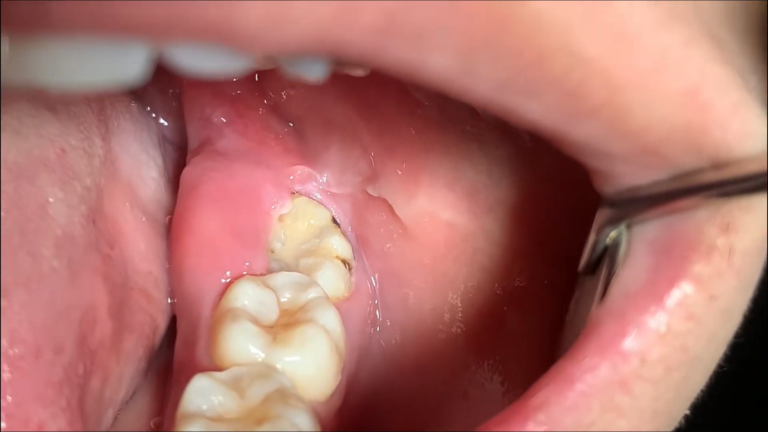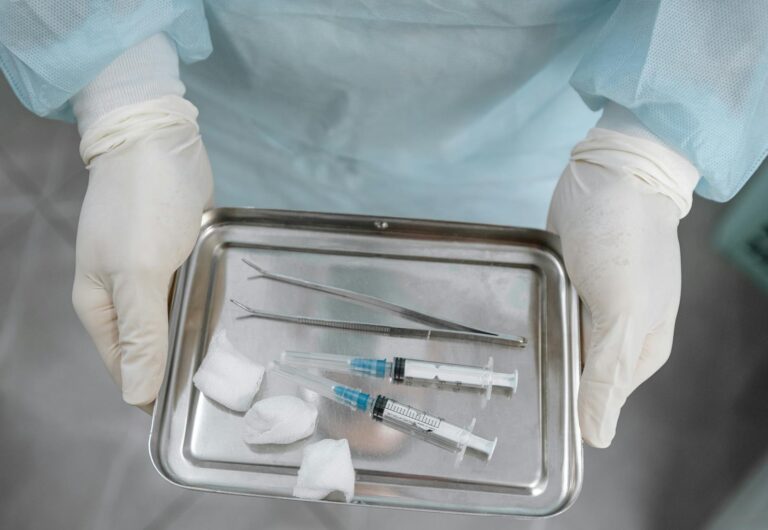Risks of Wisdom Tooth Extraction Surgery
Let’s be honest—no one gets excited about surgery, especially when it involves their mouth. Even though wisdom tooth extraction is one of the most common oral surgeries performed worldwide, it’s completely normal to feel anxious about what could go wrong. Patients often ask, “What are the risks?” and it’s a fair question.
The good news? For most people, wisdom tooth removal goes smoothly, especially when done at the right time and by an experienced dentist or oral surgeon. But like any surgical procedure, it does come with potential risks. Let’s explore them—openly, honestly, and in plain English.
Swelling, Bruising, and Discomfort
After wisdom tooth extraction, it’s completely normal for your body to respond with some swelling and soreness—especially around the cheeks, jawline, and even the neck area in some cases. This inflammation is part of your body’s natural healing process. It’s how your immune system protects the area and starts repairing the tissue.
Most patients begin to notice swelling within the first 12–24 hours, with the discomfort typically peaking around day two or three. In some cases, you may also experience:
- Bruising that appears along your cheeks or jaw, particularly if the surgery involved deeper or more difficult extractions
- Tightness or stiffness when trying to open your mouth, known as temporary trismus
- Mild to moderate pain, especially when chewing or speaking
These symptoms are manageable with prescribed painkillers, cold compresses during the first 48 hours, and warm compresses after that to help with muscle relaxation. Most patients report steady improvement by the fifth day, and significant relief by the end of the first week.
However, if swelling increases rather than decreases after the third day, or if the pain becomes severe instead of gradually subsiding, it may be a sign of infection or another complication—and it’s worth contacting your dental provider.
Bleeding That Lasts Longer Than Expected
Some bleeding is expected after wisdom tooth surgery—especially during the first few hours. Your mouth is full of blood vessels, and even a minor procedure can trigger light bleeding or oozing from the extraction site.
Immediately after surgery, your dentist or oral surgeon will place gauze over the wound to help form a blood clot and control the bleeding. You’ll be asked to bite down firmly but gently, keeping steady pressure for at least 30–45 minutes.
However, bleeding that:
- Persists for several hours despite pressure
- Soaks through multiple gauze pads quickly
- Starts again after initially stopping
…could indicate a dislodged blood clot, overly vigorous rinsing or spitting, or even a reaction to medication such as aspirin or blood thinners.
To minimize the risk of prolonged bleeding:
- Avoid spitting, using straws, or forceful rinsing within the first 24 hours
- Rest with your head slightly elevated, and avoid intense physical activity
- Refrain from smoking or vaping, which can interfere with clot formation
If bleeding continues beyond 8–12 hours or seems to worsen, don’t hesitate to call your dentist. They may need to place additional gauze, stitches, or apply a hemostatic agent.
Dry Socket (Alveolar Osteitis)
Among the complications that can follow wisdom tooth surgery, dry socket is the one most patients fear—and for good reason. When a tooth is removed, your body naturally forms a protective blood clot over the empty socket. This clot serves as a barrier, shielding the exposed bone and nerve endings underneath while healing begins.
But if that clot:
- Dissolves too soon,
- Gets dislodged,
- Or never forms at all,
…you end up with a dry socket, which leaves the bone and nerve endings raw and unprotected. The result is intense, radiating pain that usually begins around day 3–5 post-surgery and can be far worse than the discomfort right after the procedure.
Common symptoms of a dry socket include:
- Sharp, deep throbbing pain at the extraction site
- Pain radiating toward your ear, jaw, or temple
- Foul odor or bad taste in your mouth, sometimes accompanied by visible bone in the socket
It’s more common after lower wisdom tooth removal, and the risk increases if you smoke, use straws, or are on birth control pills.
Fortunately, dry socket is treatable. Your dentist can clean the site and place a soothing medicated dressing that promotes healing and reduces pain. You may also be prescribed anti-inflammatory medications and given follow-up care instructions.
The best way to avoid dry socket?
Be gentle with your mouth during the healing phase. Don’t rinse aggressively, smoke, or eat hard/crunchy foods too soon. Think soft foods, rest, and patience—you’ll thank yourself later.
Infection
Infection is one of the potential—but relatively rare—complications after wisdom tooth surgery. That said, it’s still important to know what to look out for, especially since the mouth is naturally full of bacteria. When bacteria enter the extraction site—either during the procedure or in the days following—it can lead to localized infection.
You might be dealing with an infection if you experience:
- Swelling that worsens instead of improves after the third or fourth day
- Persistent or intensifying pain, especially if it doesn’t respond to prescribed medication
- Fever, chills, or general fatigue, which are signs your body is fighting an infection
- A foul taste in your mouth, often caused by pus or drainage from the surgical site
- Redness or heat around the affected area
Minor infections can usually be treated with a course of oral antibiotics, saltwater rinses, and careful monitoring by your dentist or oral surgeon. In more advanced cases, drainage of the site or removal of debris may be necessary to promote healing.
The best way to prevent infection? Follow your aftercare instructions to the letter—keep your mouth clean, avoid touching the area with your fingers or tongue, and don’t smoke or eat sharp or sticky foods that could disturb the wound.
Nerve Injury (Temporary or, in rare cases, Permanent)
For lower wisdom teeth, there’s another layer of complexity: they sit very close to two important nerves—the inferior alveolar nerve, which runs through the lower jaw and provides feeling to your chin and lower lip, and the lingual nerve, which affects sensation in your tongue.
During extraction—especially of deeply impacted lower wisdom teeth—these nerves can be brushed, compressed, or in rare cases, damaged.
Symptoms of nerve involvement may include:
- Tingling, numbness, or a “pins and needles” feeling in the lower lip, chin, or side of the tongue
- Loss or alteration of taste on the affected side of the tongue
- Mild difficulty speaking, eating, or sipping from a straw, usually only in severe or persistent cases
In the vast majority of cases, nerve disturbances are temporary, with sensation gradually returning over a few days to several months as the nerve heals. Permanent nerve damage is extremely rare, especially when modern imaging techniques (like panoramic X-rays or CBCT scans) are used during surgical planning.
If you do experience lingering numbness or tingling, your oral surgeon may recommend medications that support nerve recovery or refer you to a specialist for evaluation.
Sinus Complications (For Upper Wisdom Teeth)
For upper wisdom teeth, there’s a unique risk that lower teeth don’t face—proximity to the maxillary sinus, a hollow space located just above the roots of your upper molars. In some people, the roots of the wisdom teeth are so close to the sinus floor that removal can create a small opening between the mouth and sinus cavity.
If this happens, you may experience:
- A sensation of air flowing from your nose to your mouth, especially when you breathe or blow your nose
- Mild nasal congestion or post-nasal drip
- A nosebleed or clear discharge, occasionally with traces of blood
- Mild sinus pressure or discomfort near the cheekbones
Dentists usually spot this risk on X-rays before surgery, and if there’s any indication that the sinus may be involved, they’ll take extra precautions during the procedure. In cases where a sinus opening (known as an oroantral communication) does occur, it’s often small and heals on its own within a couple of weeks.
Larger openings may require stitches, sinus precautions (such as avoiding sneezing or nose blowing), or, in rare cases, referral to an oral surgeon or ENT specialist for closure.
Jaw Stiffness or Lockjaw (Trismus)
After wisdom tooth extraction—especially if the surgery involved lower teeth or took longer than expected—it’s common for patients to experience jaw stiffness, or in more clinical terms, trismus. This condition refers to restricted mouth opening caused by inflammation or trauma to the muscles and joints involved in chewing.
Why does this happen?
During surgery, your mouth is held open for an extended period, which puts stress on the temporomandibular joint (TMJ) and the surrounding muscles. The repeated pressure or manipulation in the area may cause those muscles to become sore, inflamed, or slightly spasmed. In some cases, even the injection of local anesthesia near the jaw muscles can contribute to temporary stiffness.
You may notice:
- Difficulty opening your mouth widely, especially in the first few days
- Tightness or soreness when yawning, eating, or speaking
- A “locked” feeling that makes jaw movement feel limited or awkward
The good news? Trismus is almost always temporary, and it usually improves within a week or two with gentle care. Some ways to relieve the discomfort include:
- Applying warm compresses to the jaw area several times a day to relax the muscles
- Doing gentle stretching exercises (as recommended by your dentist) to increase jaw mobility
- Taking anti-inflammatory medications, such as ibuprofen, to reduce swelling and ease movement
While trismus can make the healing process feel more frustrating, it’s rarely permanent. However, if jaw stiffness persists beyond two weeks or worsens over time, it’s worth following up with your provider to rule out joint issues or infection.
Allergic Reactions or Medication Side Effects
Any surgical procedure that involves medications or anesthesia carries a small, but important, risk of adverse reactions. While most people tolerate dental anesthesia and post-operative medications quite well, it’s essential to be aware of how your body might respond—especially if you have a history of allergies or sensitivities.
Potential reactions can include:
- Mild nausea or dizziness, especially with pain medications or sedatives
- Skin rashes, itching, or hives—a possible sign of an allergic response
- Swelling of the face, lips, or throat, which could indicate a more serious reaction like anaphylaxis (though this is rare)
- Breathing difficulties in patients with asthma or respiratory issues
- Increased bleeding if you’re taking blood thinners or have a clotting disorder
To reduce the risk of complications, always provide your dentist or oral surgeon with a complete medical history before your procedure. This includes:
- Any known drug or latex allergies
- Past experiences with general or local anesthesia
- All medications or supplements you’re currently taking, even over-the-counter ones
- Existing conditions like asthma, diabetes, heart problems, or bleeding disorders
Being upfront allows your dental team to make the safest choices when planning your care—such as choosing the right anesthetic, adjusting your medication plan, or coordinating with your primary care physician if needed.
In the rare event that a reaction does occur, most dental offices are fully equipped to manage emergencies, and your provider will know how to respond quickly and appropriately.
Final Thoughts
Wisdom tooth extraction is a routine surgery—but “routine” doesn’t mean risk-free. Knowing the possible complications helps you prepare mentally and physically. The good news is that most of these risks can be **minimized with good surgical technique, proper home care, and open communication** between you and your dental team.
So, don’t let fear hold you back from doing what’s best for your health. If your wisdom teeth are impacted, infected, or damaging other teeth, removal might just be the relief you didn’t know you needed.
Talk to your dentist, ask questions, and take comfort in the fact that thousands of people go through this every day—and come out smiling on the other side.






